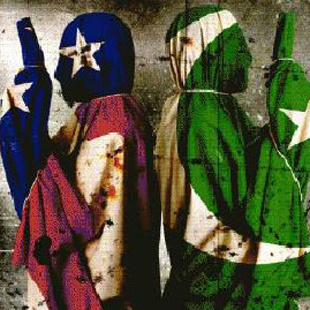Pakistan and the Aftermath of Bin Laden’s Death

PM: There are many vague points about his death. But whatever the reality, what can be not denied is the impact of this new development for the US, Afghanistan, Pakistan, India and Iran.
IRD: What would those impacts be?
PM: My personal opinion is that Pakistan is the big loser in this episode. Islamabad has always denied reports that Bin Laden has taken shelter inside it territory, but he was killed near a major Pakistani air base. Another question is, how can the Pakistani army defend the country if the Americans can carry out helicopter operations inside its borders? On the other hand, India and Afghanistan are the winners. They’ve accused Pakistan of being the fertile ground for terrorism and the main setback in the war against terrorism in Afghanistan and across the world. President Karzai also defended rooting out terrorism initially in Pakistan.
Bin laden’s assassination was a warning to other extremists leaders, particularly Taliban leaders who may face a similar fate if they resist joining the national peace process. President Obama and the Democrats were, of course, key beneficiaries of Bin Laden’s death, since it can divert attention from other challenges, whether in Middle East or inside the United States. Obama has increased his chance of reelection by this operation.
IRD: How do you predict Al Qaeda’s reaction to this operation?
PM: I think in short-term or even mid-term, they will step up terrorist attacks inside Pakistan and Afghanistan. However, in the long-term, they will undoubtedly feel pressure from Pakistan to move their forces out of the country and that will be a big blow to the organization. Bin Laden’s death is not a serious strike against AlQaeda. They will select another leader, and will continue their terrorist operations.
IRD: Do you think Bin Laden’s death will speed up a US withdrawal from the Middle East?
PM: The Americans have already decided to cut the number of troops in Afghanistan by next June. However, it would be simplistic to think that the Americans would leave Afghanistan on its own. US military bases will remain active in Afghanistan. Bin Laden’s death will at least give Obama a chance to leave Afghanistan with dignity. The Taliban’s threats against the US look less serious now, and Washington has found the opportunity to confer the responsibility of fighting the Taliban and Al Qaeda to the Afghan Army.
IRD: How will the operation affect Washington-Islamabad ties?
PM: I think Islamabad is under heavy pressure from Washington. The US follows a “carrots and sticks” policy with respect to Pakistan. On the one hand, the White House presses its Pakistani partners to align themselves with US policies, and on the other hand, it does not forget financial incentives. However, it seems that a dual track policy toward Islamabad is at its end. Pakistan can’t support radical Islamists backstage, and receive funds to fight terrorism from US at the same time. Sooner or later, the Pakistanis will have to adopt a clear policy and probably encourage the Taliban to engage in peace talks with Karzai’s government. This will ultimately add to the pace of reconciliation in Afghanistan.
Pir-Mohammad Mollazehi is an Indian Subcontinent expert.

